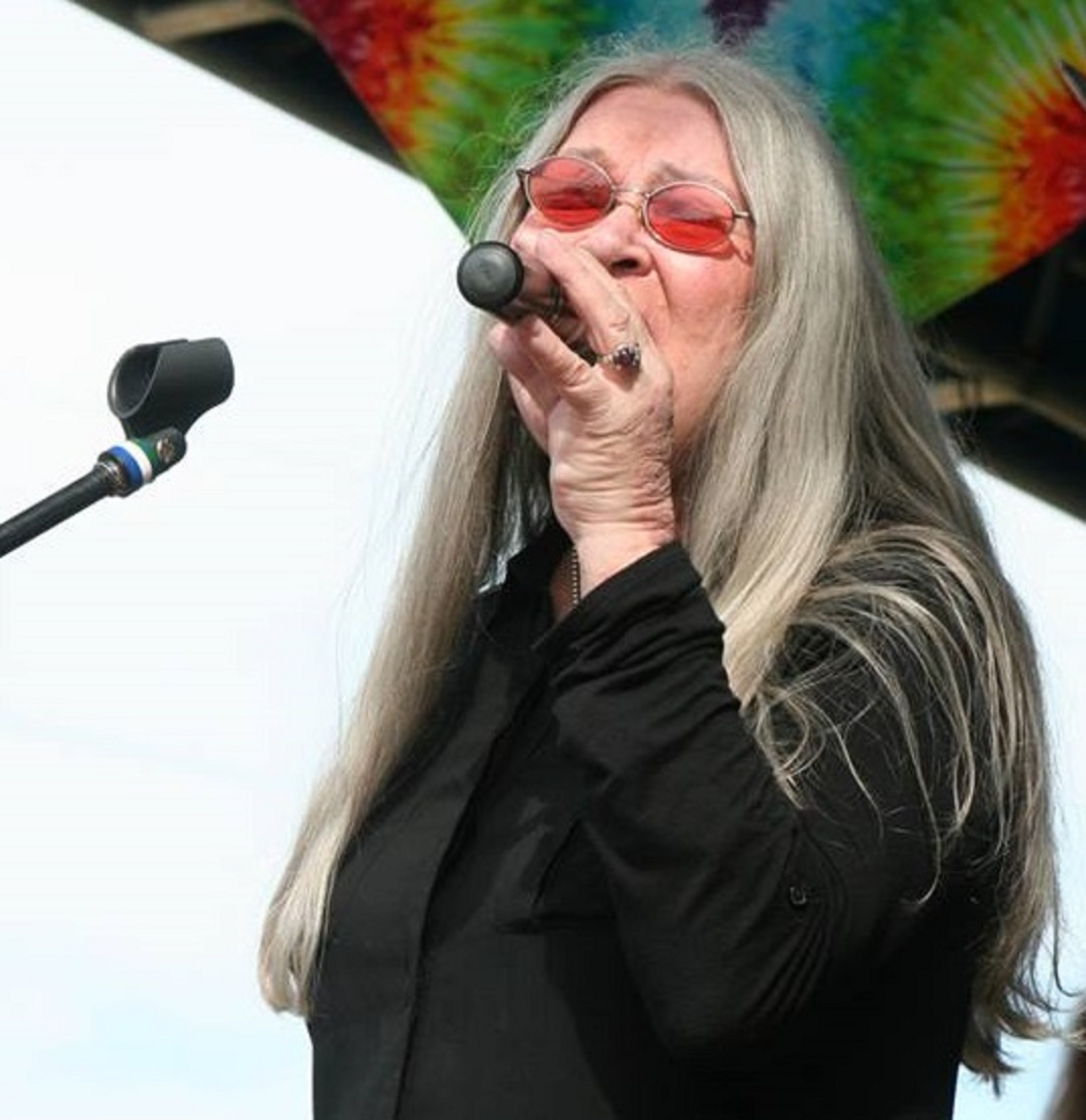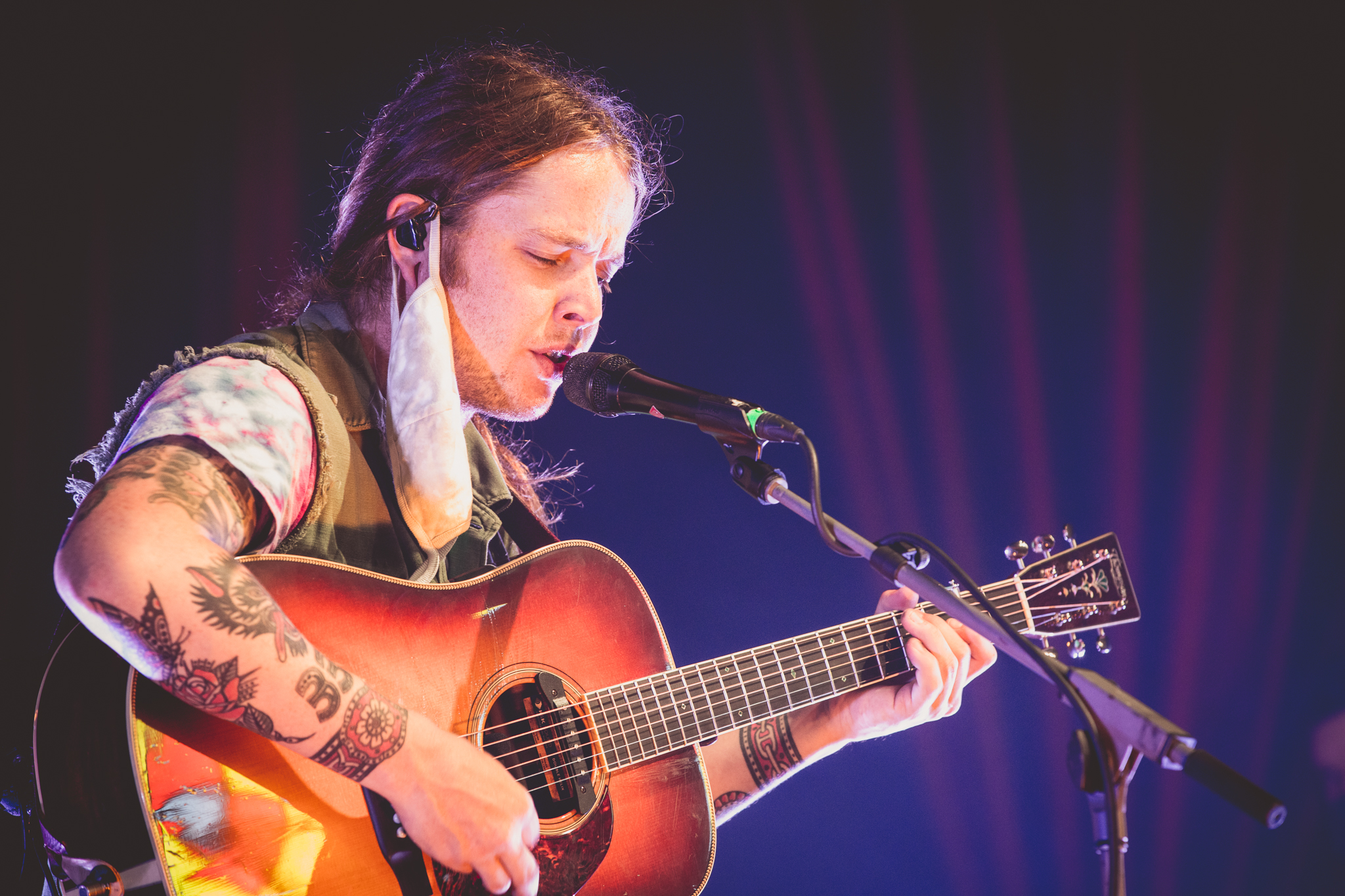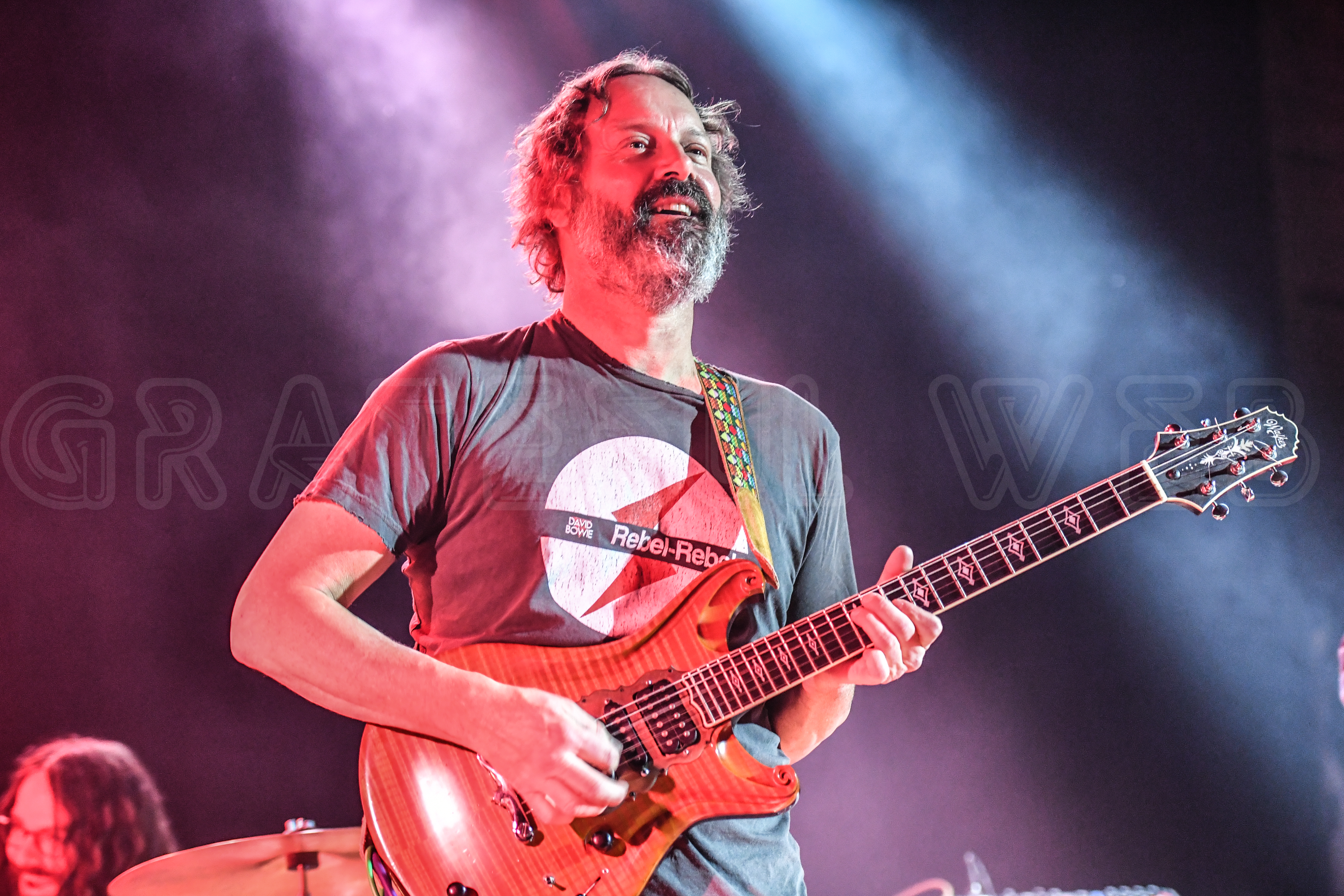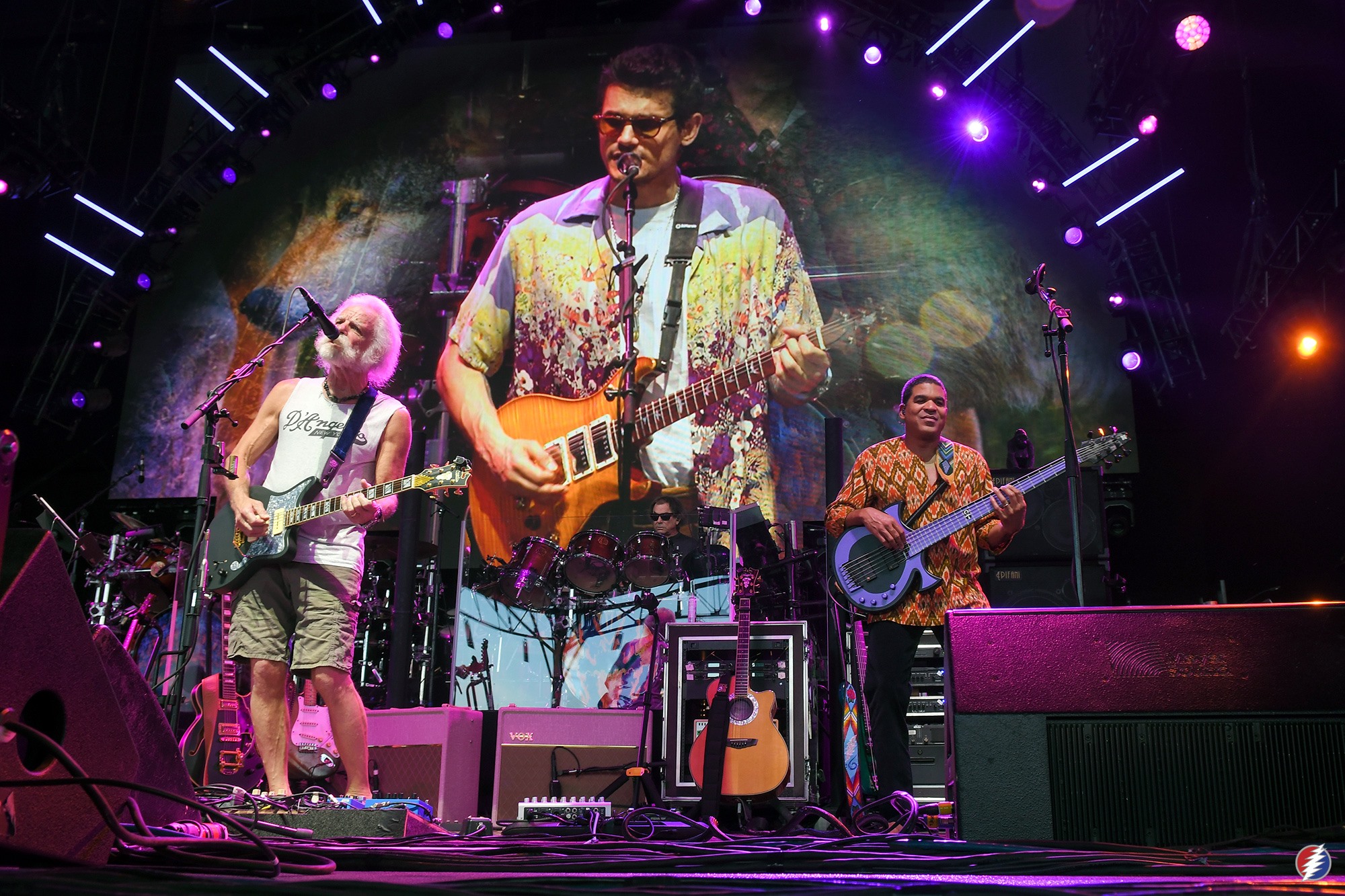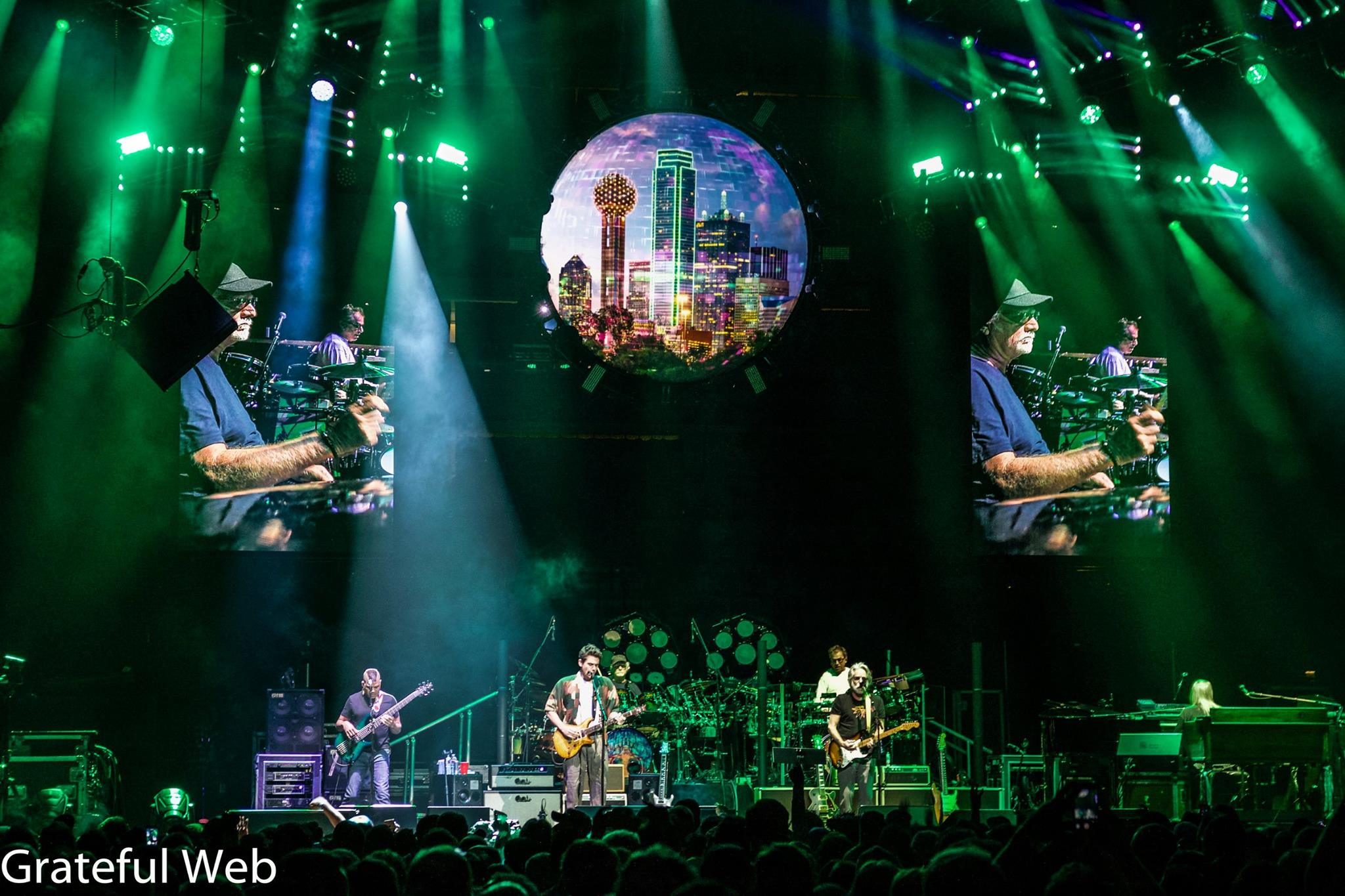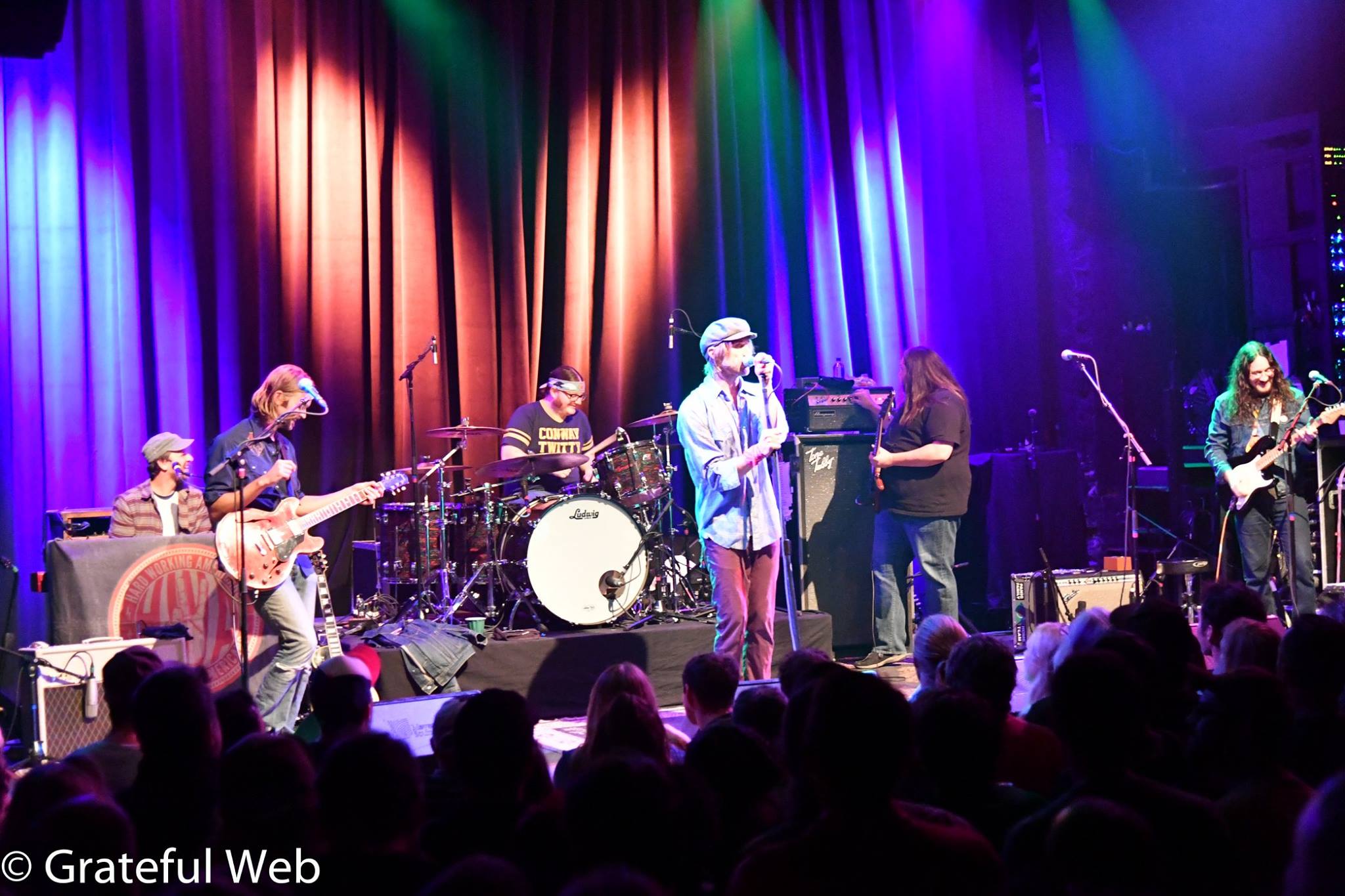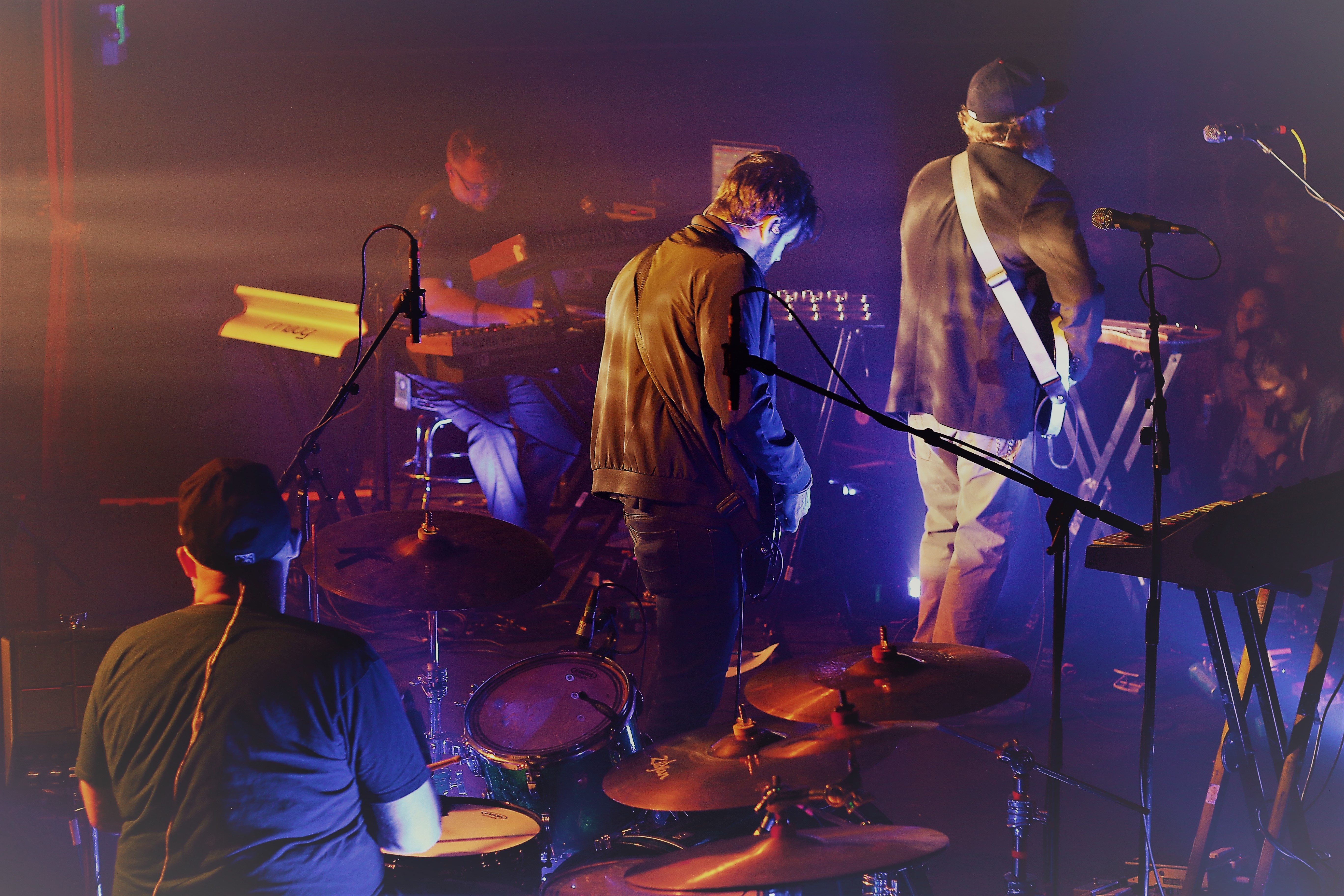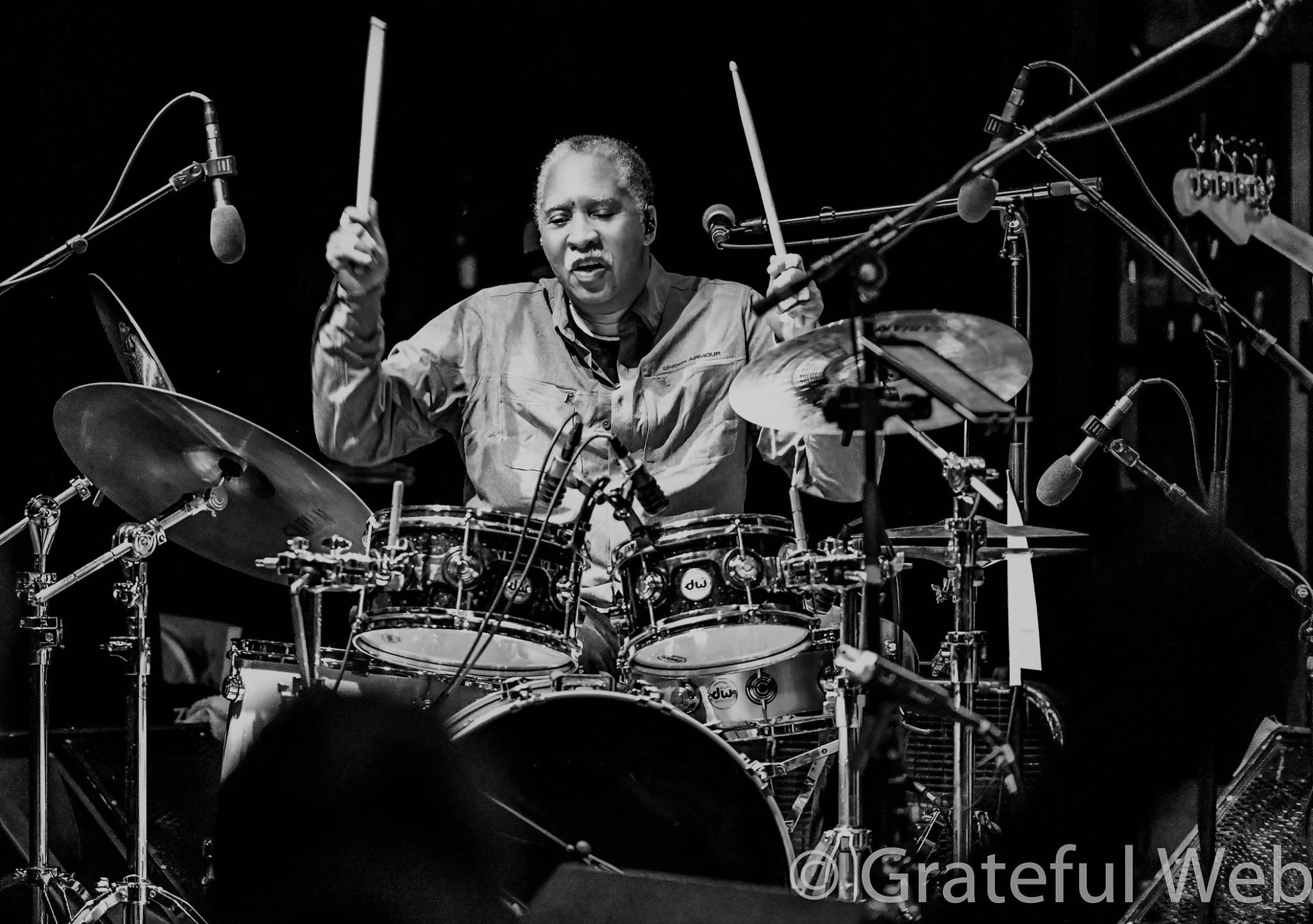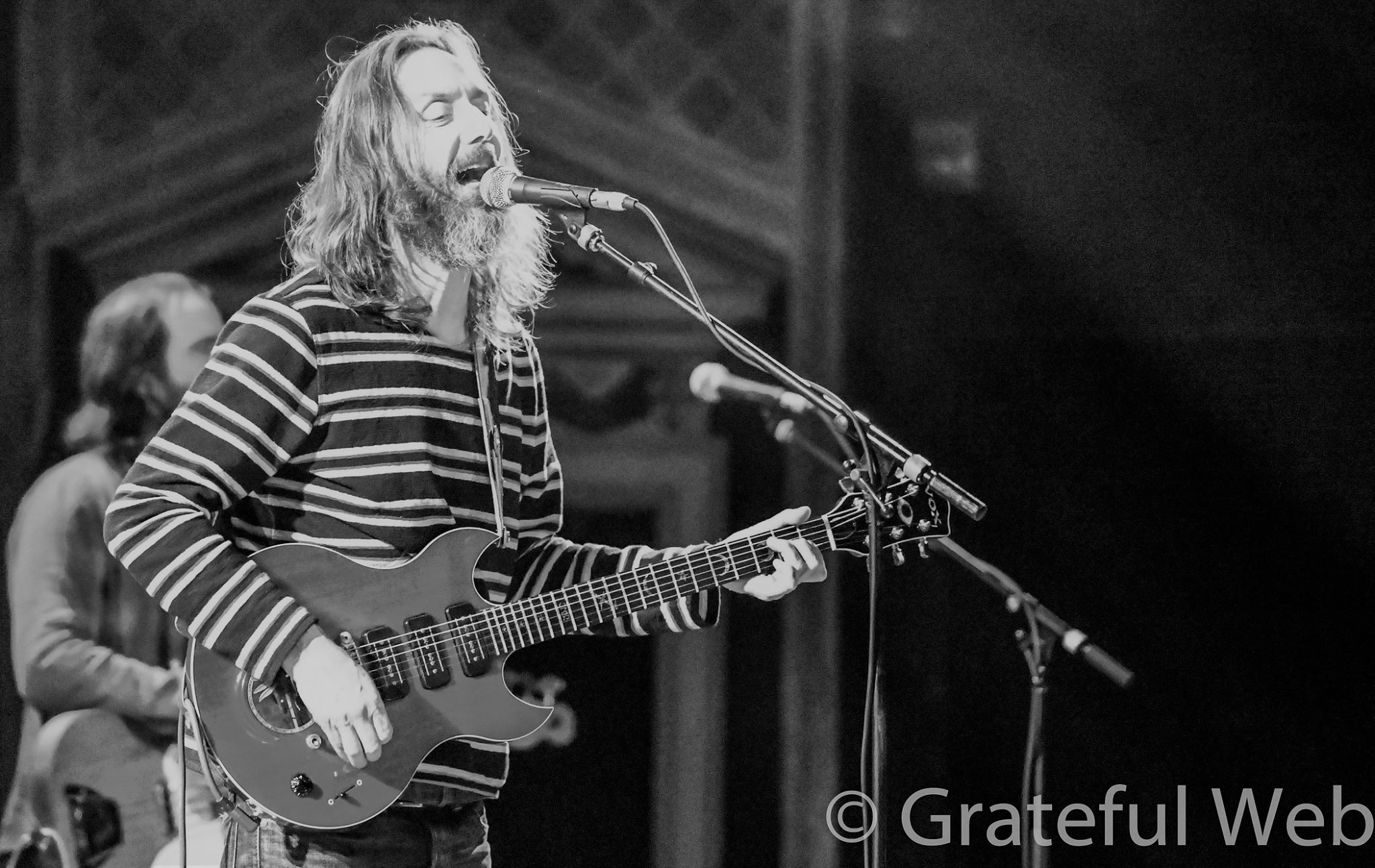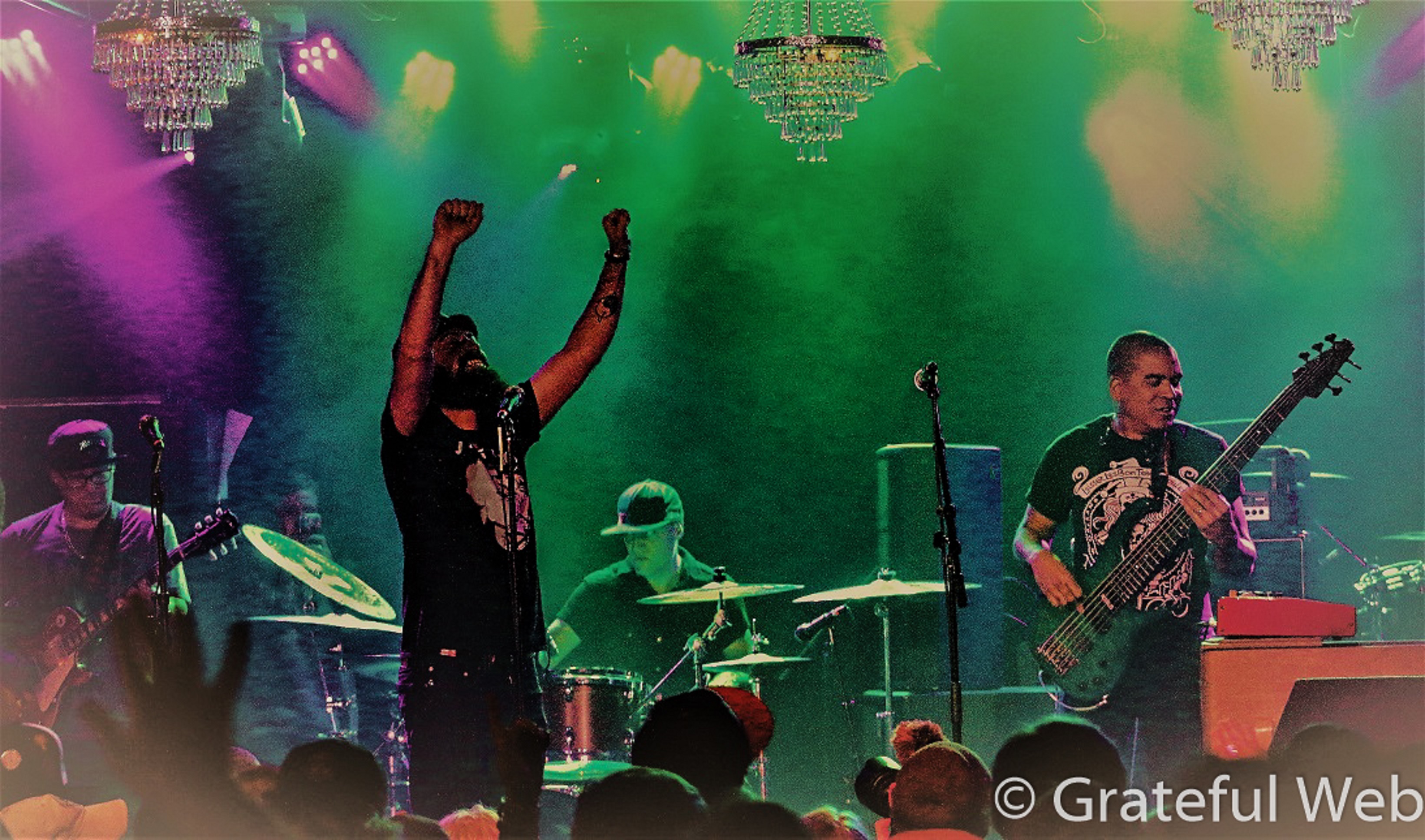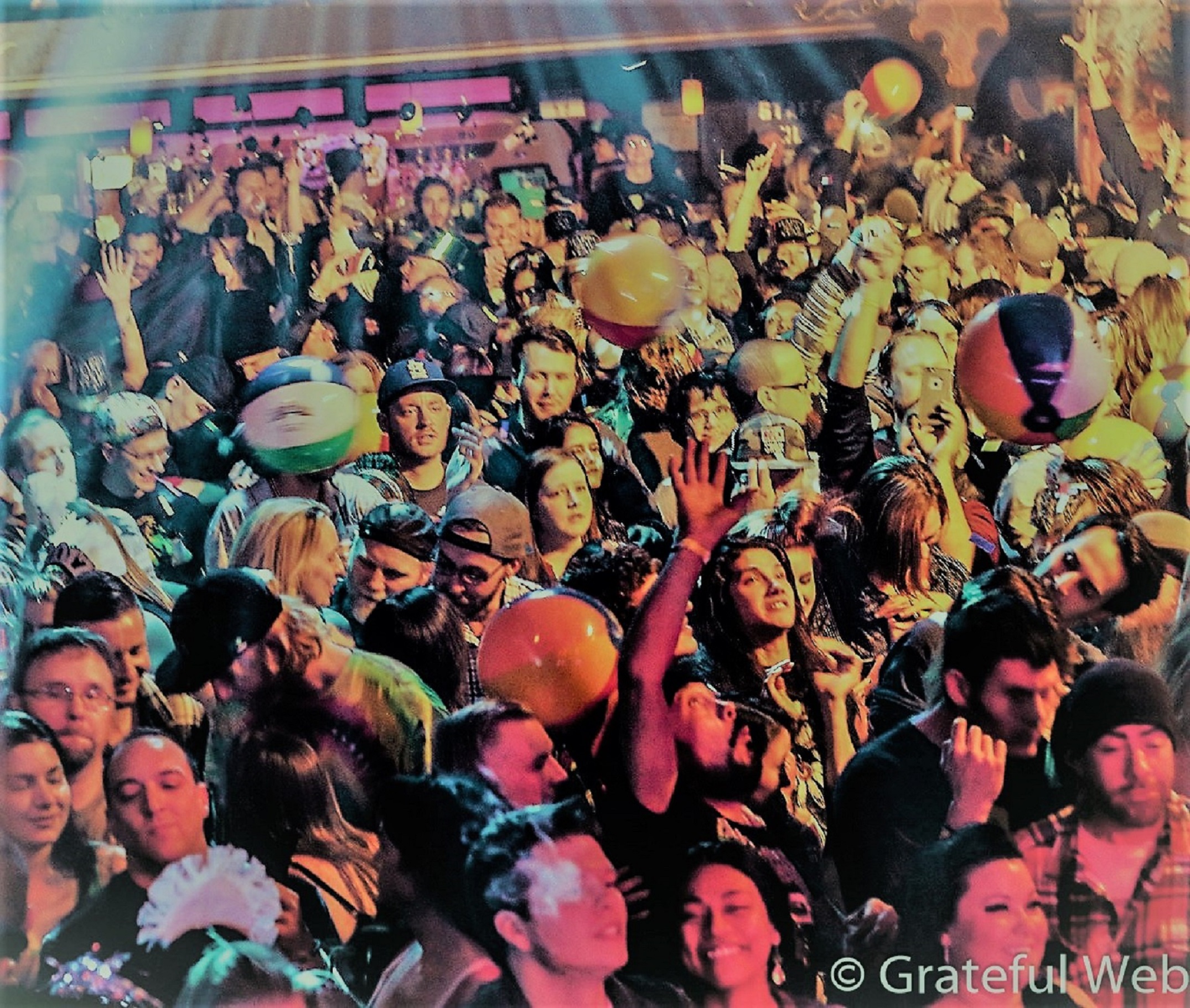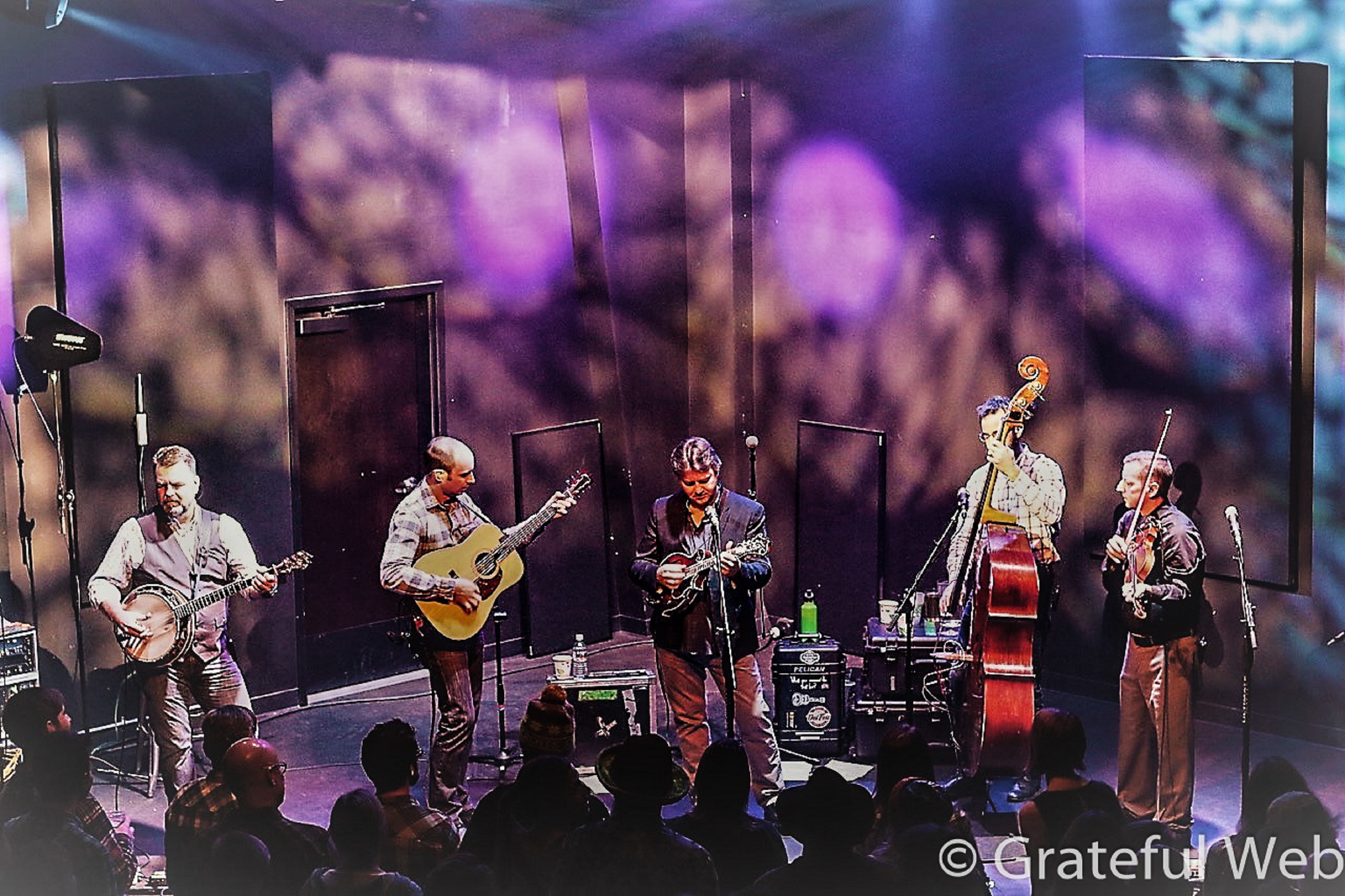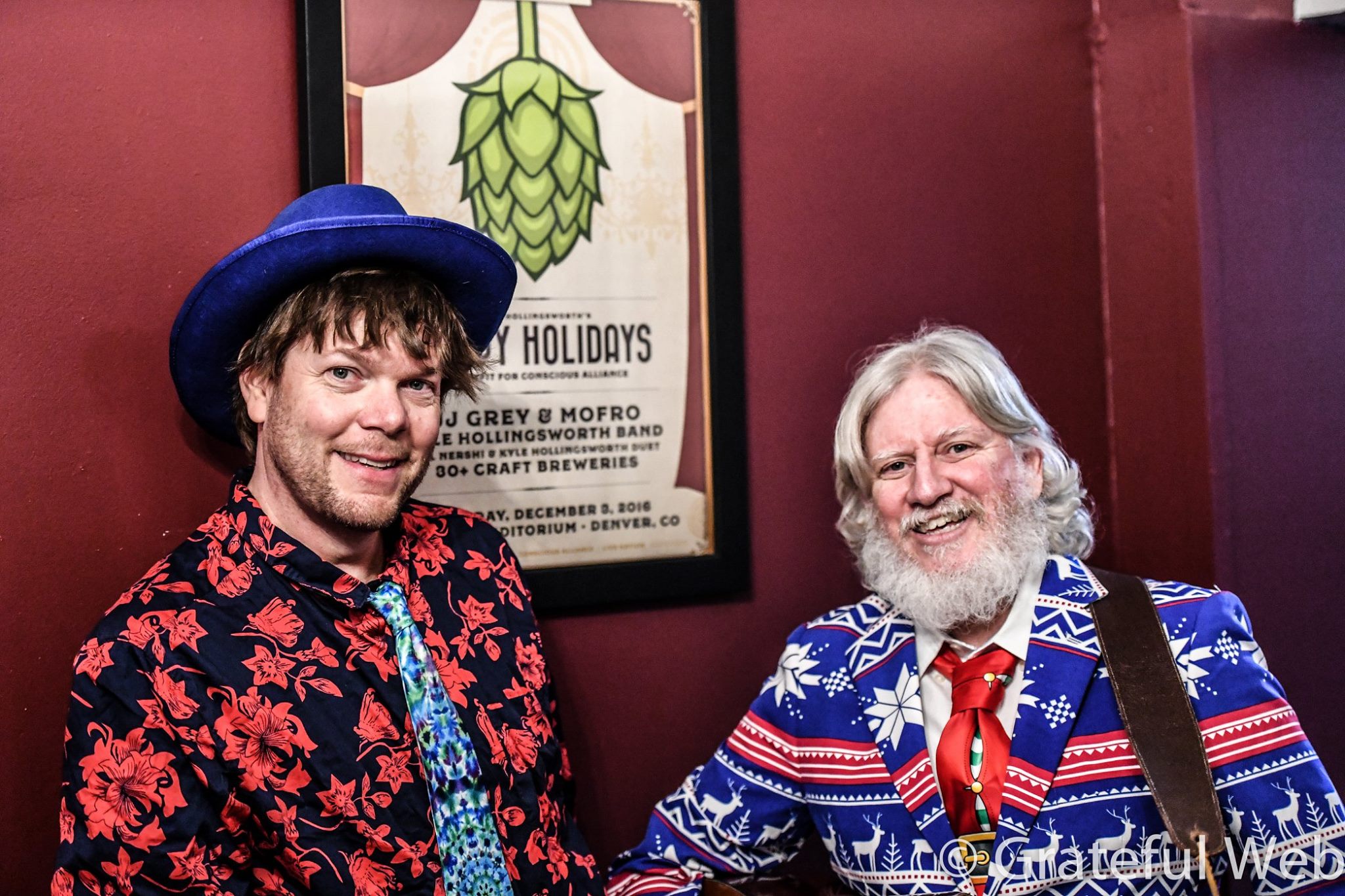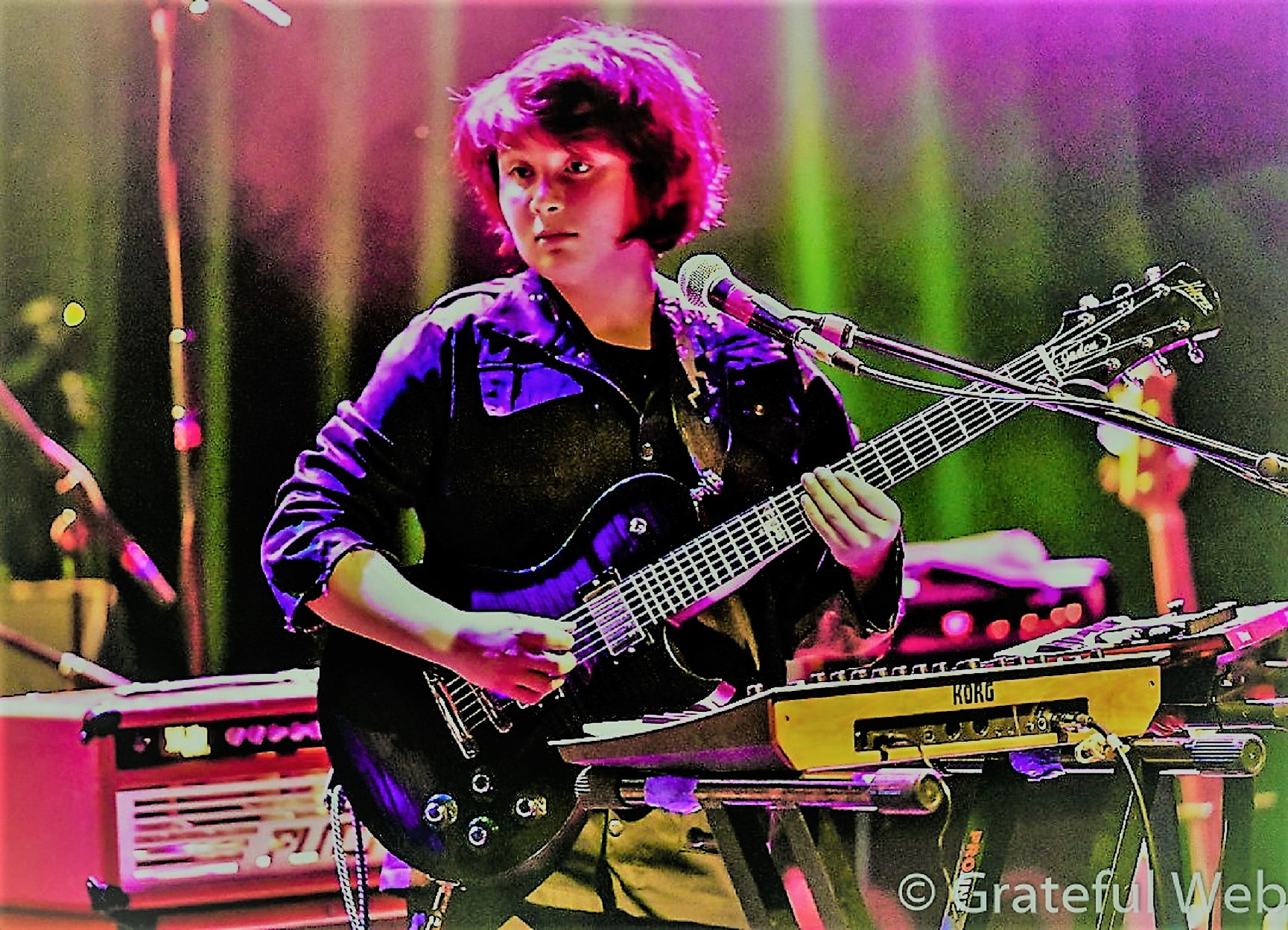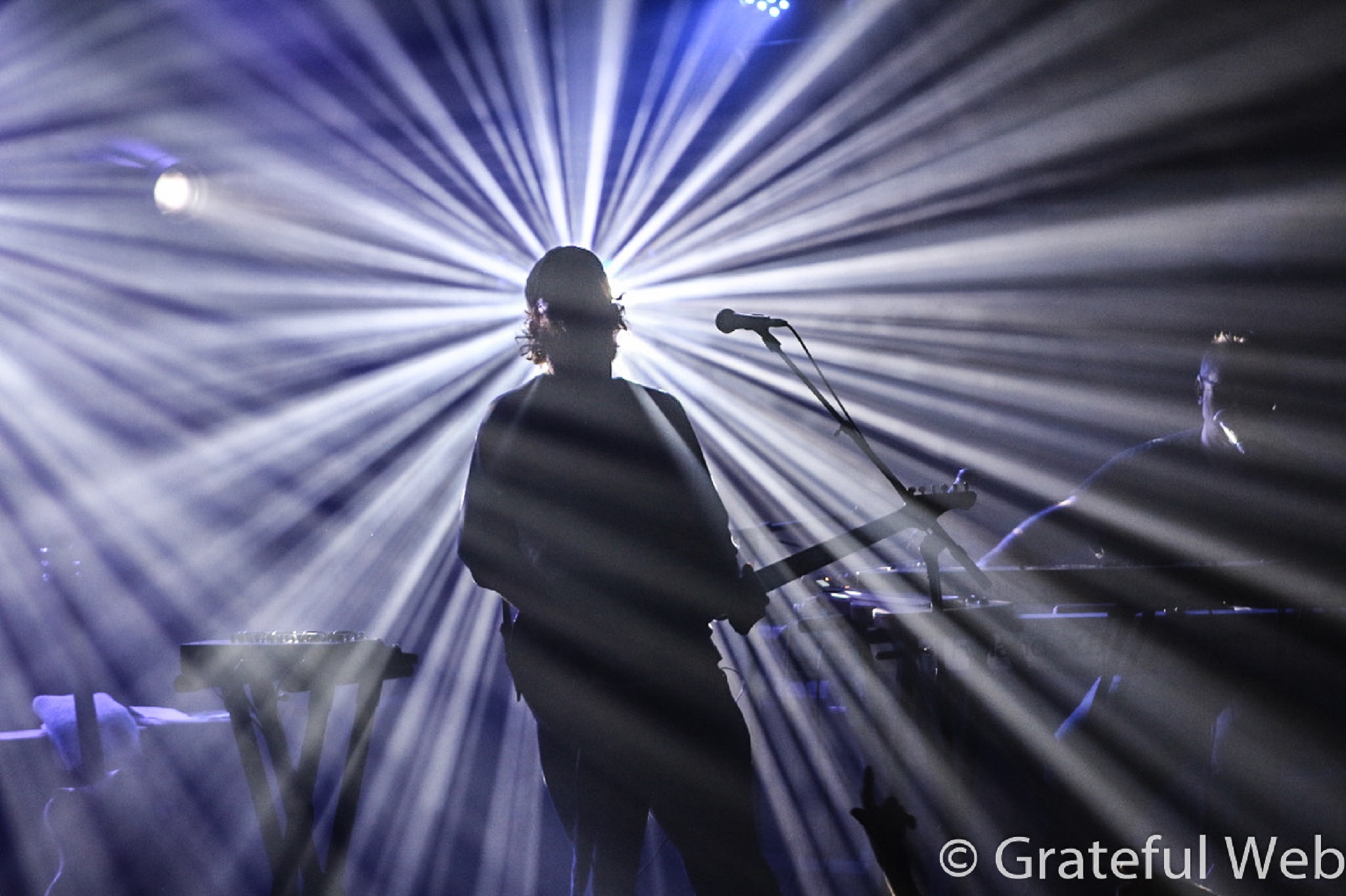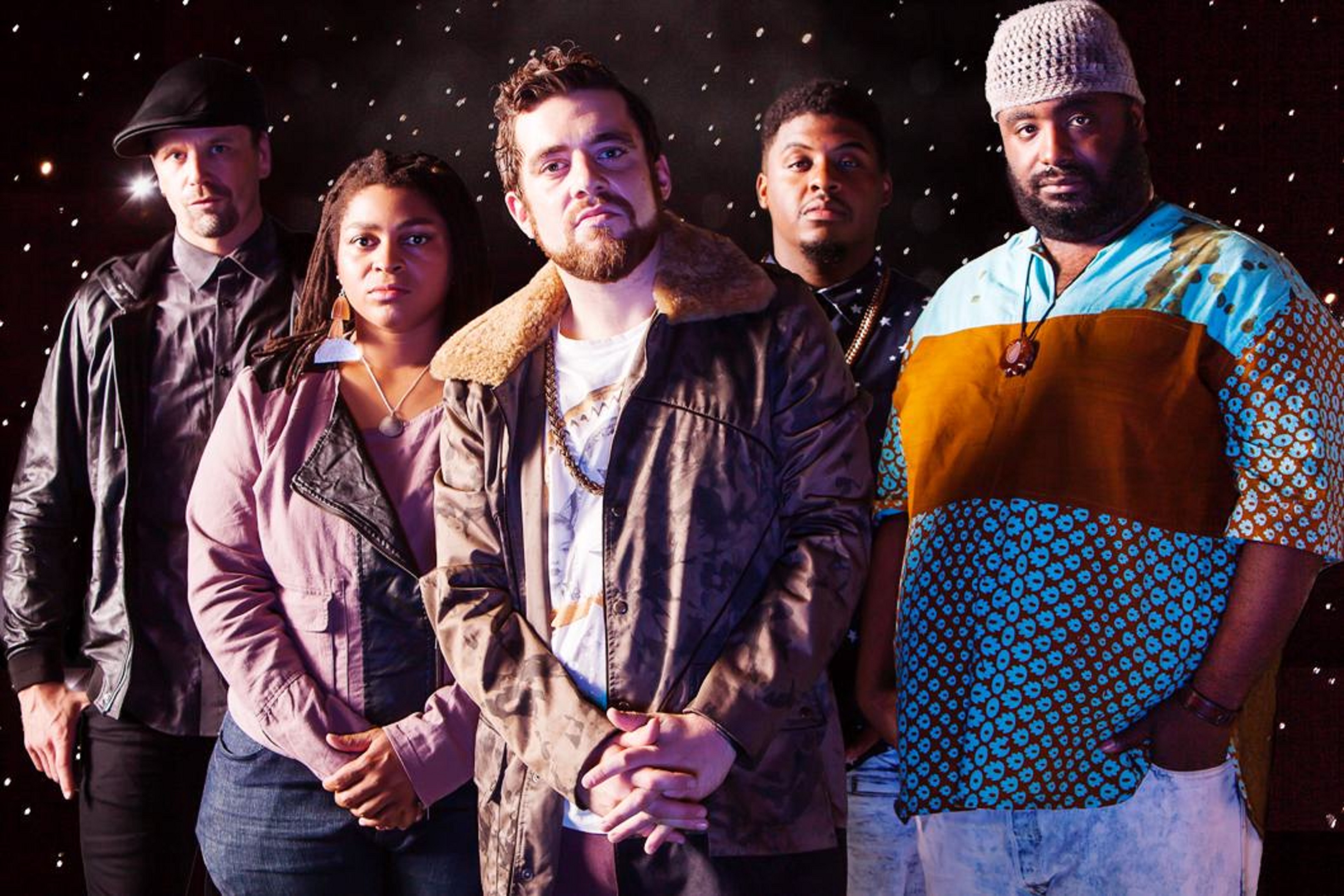Donna Jean Godchaux has left her lasting voice on multiple generations and genres of music. As the Queen of Muscle Shoals, one of the premiere recording destinations in the United States, she conquered radio hits with Percy Sledge and Elvis Presley at an early age before transitioning into the psychedelic soaked world of San Francisco’s Grateful Dead. The elegant southern demeanor that was exposed to the views of an ever-changing caravan of creativity and excess came out for the better. With a new album by the Donna Jean Godchaux Band featuring Jeff Mattson set for release February 18th, Donna has come full circle. She joins the Grateful Web’s John Schumm to discuss her new album Back Around, her son Zion’s blossoming yet offbeat approach to his band BoomBox, the magic family of a community in Muscle Shoals, and of course, her time with the Grateful Dead and Jerry Garcia Band.
Grateful Web: This is John Schumm with the Grateful Web, and I have the lovely Donna Jean Godchaux here with me today. Thanks for joining me, first of all. How are you and what’s new?
Donna Jean Godchaux: Well, first of all, it’s my pleasure to be with you, and I’m doing really well. Just looking forward to this CD’s release, that is one of the best things I’ve ever done, so, I’m really excited about it.
GW: Wonderful. I’ve been looking at some of the stuff about it, and I see it’s coming out on February 18th.
DG: Right.
GW: I definitely have a few questions about that (new CD), but before we get going, a minute ago we were talking about your son, Zion, who’s out on the road with his band, BoomBox. How does it feel knowing you raised a musician who’s followed the offbeat, anti-corporate path of a band sort of like the Grateful Dead, as far as the approach to the industry? How does it feel having a family of musicians?
DG: Well, first of all, Zion, from the minute he came out of the womb, he was playing drums. How could he avoid it? I was pregnant with him and on the road with the Grateful Dead for eight and a half months of my pregnancy, and so all of that music, that loud Grateful Dead music, was going through him in gestation, so if he had turned out to be anything else it would have been a miracle (laughter). So he has always been musical, all of his life, and you know, to my pleasure. I’m sure that were Keith (Godchaux) alive today, he would be so proud of Zion, as am I. Couldn’t be prouder of my son. He’s taken a route, like you said, that was non-corporate. It was the same kind of energy that the Grateful Dead had in doing what was lifeblood to them. Zion is doing it as well, kind of in the same vein. It’s different music in that it’s not a full band on stage, yet they do music that is like the Grateful Dead in that the music is different every time they play it. Nothing is the same from one night to the next yet there’s the template to the song. I’m just proud of him, the way that he’s organized his musical life. It’s really, really great.
GW: I actually had the chance to speak with him (Zion) the other day before he sound checked in Columbia, Missouri and I’d like to read a little snippet where he talked about you, if that’s all right?
DG: (Laughter) Ok.
GW: So here’s the quote from Zion. I was asking him about your influence on his musical career in general and in life: “I mean, my mom, she’s got, soul. She is soul. It pours out of her. As a baby, her singing voice, it’s always kept soul really close to me.” And that’s the end of that quote.
DG: Wow.
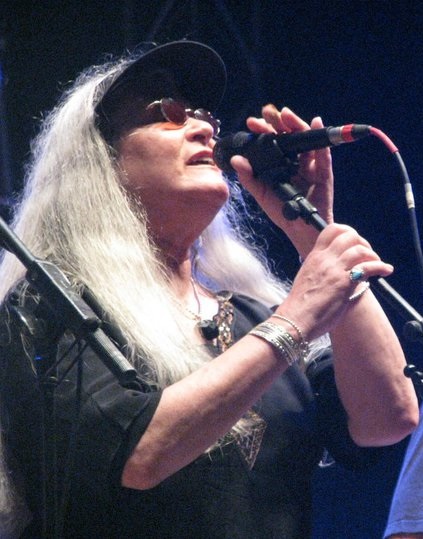
GW: It’s so nice being able to talk to your son and then you in such a close period of time. Going off of his quote, where does this soul that he speaks of, that seems to radiate from you, where did this soul develop how did you learn to harness it?
DG: Well, you can speak about soul on a couple of different levels, whether you’re talking about music or talking about a person in general. I grew up in Muscle Shoals, Alabama, which has put forth so much soul in music. I don’t know if you’re familiar with it, have you heard about the movie, Muscle Shoals?
GW: I have. I read a little about it but haven’t seen the movie yet. I think the first time I heard of it (Muscle Shoals) was in a Rolling Stones documentary when they were down there.
DG: You need to see that movie. I say, unless you hate music, you’re going to love that movie. It really chronicles, beautifully, on every level, the soul music that came out of this area, the Muscle Shoals area. We had “When a Man Loves a Woman,” Paul Simon, the Rolling Stones, Bob Dylan, I mean everybody in the world recorded here. And not too mention Aretha Franklin and Wilson Pickett, and so many people. When you see the movie you’ll understand what I’m talking about, but there was so much soul coming out of the area musically that really translates into a lifelong experience for me, and I’m sure the musicians that were born here and made a career in the music industry. I guess I would say musically, my roots started here in Muscle Shoals. I was singing on a lot of these records with all of these people, so everything that I learned and did here musically translated to when I went to San Francisco, and incorporated it into the Grateful Dead. I call myself a genuine half-breed; I’ve got the muscle Shoals side of me, and the San Francisco side of me, and I guess that translates into soul, however you want to spin that thing. Zion loves me and I love him. We are so tight, so close. I think everything that I have done in my life has spilled over to him and he utilizes all of the input that has been around him beautifully in his music.
GW: That’s good to see. I know every time I’ve seen one of his shows it’s been a totally different experience than most of the concerts you see day-to-day, week-to-week. It really feels like he has a background, whether it’s from you, or Muscle Shoals, that really seems special, different, and outside of the box compared to everything else.
So following on that path, how you mentioned you carried that soul with you to San Francisco, what led you out west? What made you leave Muscle Shoals after recording with all of these artists and doing vocals with some of the more popular artists that came through?
DG: I had always wanted to go to California. That was a dream of mine that I had since I pretty much understood what geography and location and vibe and everything was. I wanted to go to California. It was a huge decision because I was in the middle of, right here in my own hometown, a really good career. I was right in the middle of something big, as far as singing and having a job and doing what I love to do, which is sing. It was a huge decision to go out there. I just knew that I had to. I don’t know if you’ve ever had this experience, but you knew that you had to do something and there was nothing else you could do but do it. So I had to tell Jerry Wexler, who was the president of Atlantic Records that I was leaving the voice group and going to California, which was huge.
GW: Oh yeah!
DG: I was having a real career at a very, very young age, and I just had to go, I just knew that I had to go. And it wasn’t to do anything really musical there, that I had like I was going from Muscle Shoals to this singing environment; I had no singing environment there. And yet, very soon after I went to California is when I saw the Grateful Dead, and I told someone who was sitting next to me at a concert that when I sing again, it’s going to be with this band. And lo and behold (laughter).
GW: It’s almost like fate brought you out to the west coast.
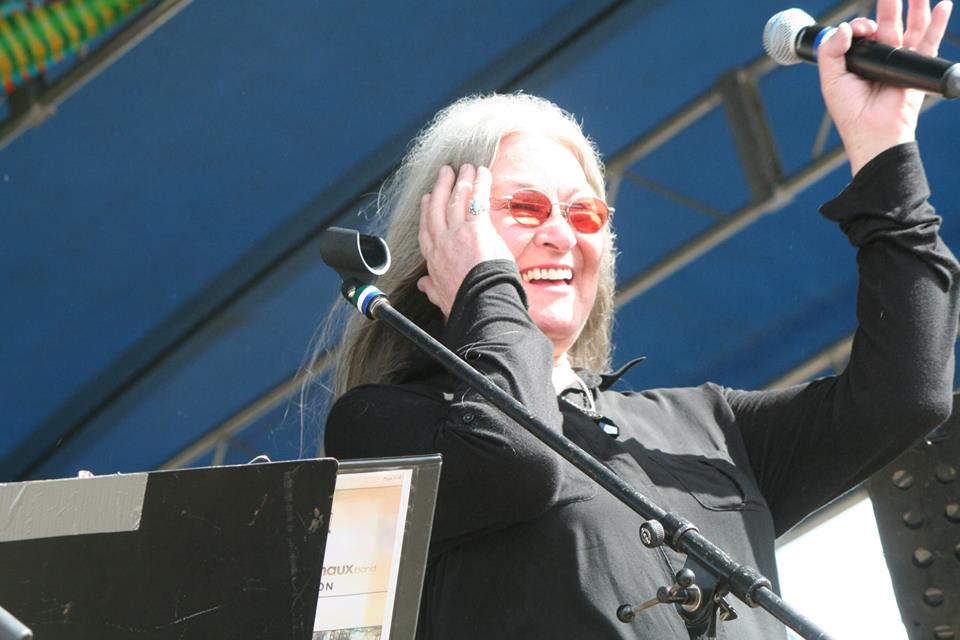
DG: Yes, and you know, and the rest is history. Now I’m back in Muscle Shoals, which will probably lead to one of your questions about the new CD.
GW: Yes, actually, you mentioned a moment ago how you were a genuine half-breed as far as Muscle Shoals goes and San Francisco. The new album, which is called Back Around, a press release describes it as: “…Blends a Muscle Shoals groove with a psychedelic San Francisco vibe.” Do you agree with the description of that, going off how both of those places are somewhat home to you?
DG: Absolutely (Laughter). That describes it perfectly.
GW: (Laughter).
DG: (Laughter). We have that Muscle Shoals groove in many of the songs, and then again we have extended jams on other songs, which definitely brings the two musical situations together, and I think we accomplished what we wanted to accomplish. And it is back around for me. Being brought up in Muscle Shoals with the musical identity I have here, and as well as San Francisco, the jam band, Grateful Dead-ish type extended musical experience, and back to Muscle Shoals. So it has been back around, and it has been so much fun to do that, believe me (laughter).
GW: I’m was looking at a list of names on the album, and of course Jeff Mattson, who you’ve worked with for a good amount of time and for the last couple of years has been touring with Dark Star Orchestra.
DG: Right.
GW: Is he featured on the entire album?
DG: Oh yeah, yes. Jeff is all over the place on this album. Jeff loves music, so he is inclined to get his head into anything that is before him musically. So he fit really well into the Muscle Shoals groove as well as the jam band music expression. He’s all over it. He’s on every song. He’s my partner in not-crime (laughter)! Jeff is my partner in not-crime.
GW: (Laughter). So do you write the songs together, do you and Jeff write them and are most of the songs original compositions?
DG: I think it’s about half and half between the originals and what we covered. Yes, Jeff and I are writing partners as well, and I guess about half the songs we wrote together.
GW: There’s what looks to be a who’s who of Muscle Shoals musicians on the album…
DG: Oh yeah!
GW: …the Muscle Shoals Horns. I wasn’t familiar with some of the names, but a quick Google search brings up (laughter) a good history of music for all of them.
DG: Yeah, Will McFarlane, who played complimentary guitar, that’s how I’d describe it, played with Bonnie Raitt in the seventies, so was her guitar player in the seventies. He’s a local Muscle Shoals’ musician that plays on most of the recordings that come out of Muscle Shoals these days as a session guitar player. He’s great. So I have a good bucket to pull from (laughter), believe me, in this area.
GW: One of the questions I asked Zion was if he had been a part of the album at all, your album, “Back Around,” and he said he was basically there as moral support, and that you had such a good crew on the album going with the players and the recording (engineers) that it was bound to be a knockout and that he didn’t need to be there for anything.
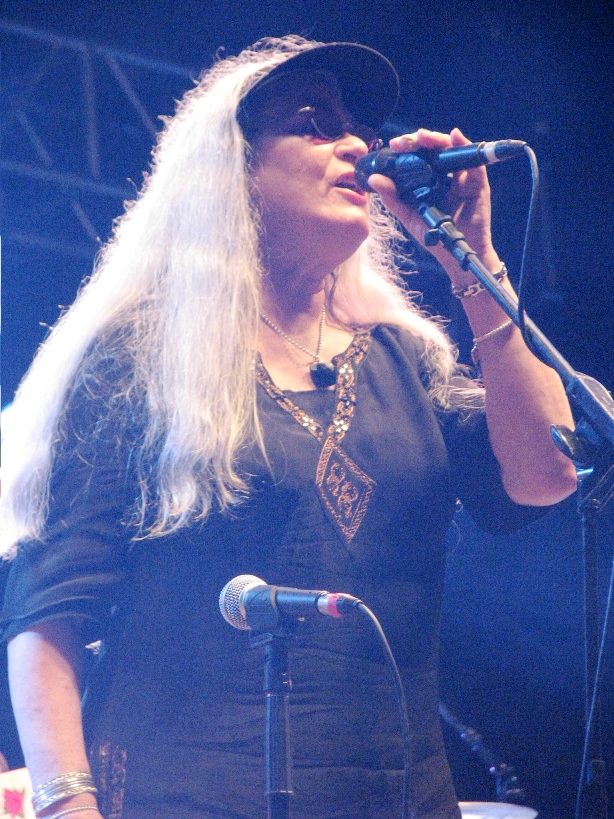
DG: (Laughter).
GW: So he really built it up, and it sounds like it’s all come together.
DG: Zion has a son, Delta, and we, between all of us that are family around here, Delta is kind of the center of our universe. So when he’s on the road, sometimes we’re taking care of Delta. And Delta himself is already a musician. He has a full-blown drum set. He has a keyboard. He’s a great singer already. He’s got perfect pitch. I can sing a song for him when he’s here one week and the next week he’ll come back and sing it in the perfect key.
GW: Wow, that’s adorable.
DG: He’s an amazing little kid and has obviously got the trickle down from the many generation of Godchauxs (laughter).
GW: (Laughter) That’s wonderful, and how old is he?
DG: He’s five.
GW: That’s so great. I’m glad to see that the musical tradition in the family is continuing.
DG: Oh my goodness, he is, like my husband David MacKay said one day when he (Delta) was over here dancing and screaming at the same time and saying how he wanted to sing and dance at the same time, and he was going off and was so good at it, and this was when he was four, and David looked at me and said, ‘we’ll all be working for him someday,’ (laughter). Anyway, to finish answering your question, yes, we, when Zion was there to support, absolutely. We support each other one hundred percent on every level. It’s just beautiful; we have such a beautiful family expression here.
GW: So good to hear. You mentioned your husband, David, he’s in the band and on the album as well, correct?
DG: Oh yeah.
GW: Beyond the album, are there plans to take the band on the road and tour at all?
DG: Well, we’ll see about that. Jeff is on the road so much with Dark Star Orchestra. It’s a little bit difficult to book between times, so I think what we’re thinking more instead of doing long tours, is doing specialized shows in precise locations and picking and choosing what we do because of Jeff’s participation in Dark Star Orchestra. For him to come home after a three-week tour with Dark Star Orchestra and then go out on another tour right away is just, you know…
GW: It can really wear down on you.
DG: It’ll really wear down on you, and he needs some home time with his wife and family and everything, so we’re not planning on ‘touring,’ but we’re planning on doing shows that make sense for what we’re doing right now.
GW: Great, well I’m looking forward to hearing about those and seeing you down the line at a show. Straying away, that wraps up the questions about the new album, but being the Grateful Web, I feel obligated to ask you about your time with the Grateful Dead, if that’s alright.
DG: Of course you are (laughter)!
GW: You were a member of the Dead for what many consider to be among their best years as far as growth, the sound, new songs, etc. Looking back on the whirlwind adventure that it must have been, how do you like to remember and reminisce about your time with the Dead?
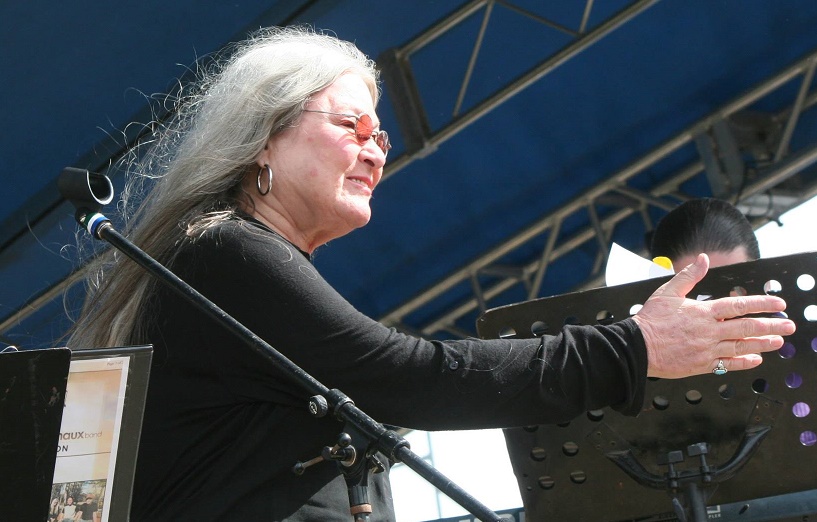
DG: The reminiscing is part of me. Having been with the band at that time with all of those classic Grateful Dead songs was a thrill and a privilege that I have that I wouldn’t trade for anything. The Grateful Dead will always be a major part of my life, and Garcia, gosh I don’t even know how to get deep enough or talk deep enough about what he meant and the influence he had on my life. He taught me and steered me to places I would have never known had I not known this man, and this band. He took me out of a place, talking musically in Muscle Shoals it was very orchestrated and arranged. Everyone knew what they were going to do, every bar of every song. And to go from here into Grateful Dead-ism, and I mean it is all over the place and out of every box you could imagine. It changed my musical life, it changed my life period, and I wouldn’t take anything for that experience. It’s so part of me I can hardly talk about it. It’s so deep. (Pause). I’m one of the most fortunate people in the world to have been in that band, and it’s in me always, it’s never going to go away (laughter).
GW: Of course! You also played with Jerry in the Jerry Garcia Band, you and Keith. How did the experience differ between playing shows with the Grateful Dead and the Jerry Garcia Band?
DG: Well...(pause)…
GW: I guess the music, or the song choice, sticks out to me.
DG: The song choice was different. Jerry got to express himself musically in a different way than with the Grateful Dead. It was a much smaller scene, in that going from stadiums to those nice little choice theaters and having a more up close and personal relationship with the audience was very different, and pleasant. It’s hard to really connect when you’re talking about fifty to sixty thousand people who are way far away from you, rather than an up front crowd in a theater or smaller venue and make music. It’s a whole different expression and I think Jerry loved that as much as he loved playing with the Grateful Dead. He loved the Jerry Garcia Band, and because of that, because it was up close and personal. And of course, John Kahn was a soul mate of Garcia and it was just fun, it was just fun and no pressure. There was a lack of pressure that was there with the Garcia band. And like you said, the song choice was way different and it was just something Jerry put his heart and soul into, and I was equally honored to be a part of that as I was the Grateful Dead.
GW: I was thinking about all of the songs that came about during that period, whether it was Jerry Garcia Band or Grateful Dead. Were there any albums you were a part of during that era that you look back on and feel the strongest about? Either Jerry Band or Dead, or even “Keith and Donna,” the album you and your husband put out in 1975.
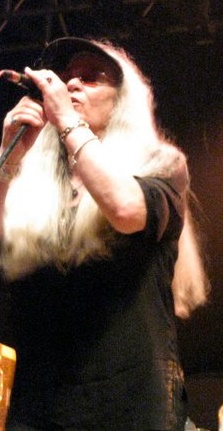
DG: Well, that’s a tough question because on all of the albums I did with the Grateful Dead, there are songs from each of them that have become Grateful Dead classics. For instance, walking into Front Street, which was the Grateful Dead rehearsal studio as well as recording studio, and Garcia and saying, ‘I have a new song called Scarlet Begonias.’ I mean, goodness gracious (laughter).
GW: I can only imagine.
DG: This is something that I regularly say these days, because you never know when you’re making history. Walking into the studio and Garcia pulling out these songs, or Weir pulling out all of his songs. “Music Never Stopped,” classic. And hearing those songs for the first time, I was like a fly on the wall, getting to be able to be a part of these iconic song images just being blurted out in one fell swoop. You’ve got “Scarlet Begonias…” I could name all of the songs, and they’re all on the albums. “Mississippi Half Step.” They’re so iconic. I can’t point to one album.
GW: I can understand that. It’s so interesting how you said you never know if you’re making history. That’s a really good thought to let run around in my head for a while.
DG: But it’s true
GW: It really is. I’m looking forward to getting my hands on your new album, and maybe there’ll be a little history made there too.
DG: Well, we shall see, won’t we?
GW: We shall. So going back, the Donna Jean Godchaux Band with Jeff Mattson and the newest album called “Back Around” comes out February 18th. Is there anything else you’d like to mention as we wrap up?
DG: I guess the only thing to say in regard to the new album is that the release date is February 18th. On March 11th we’re having a CD release party here in Muscle Shoals. All of the guys are flying down from New York and Pennsylvania for the party, and then we’re doing a full-blown concert. Instead of playing the CD, we’re going to do a concert. All of the people who played on the CD are going to be there, so we are having the Muscle Shoals Horns, some girls that I used in the background vocals, Will McFarlane, I mean, you have the CD, you can see all the names there. But everybody that played on the CD, pretty much, is going to be playing this concert in Sheffield, Alabama, which is part of Muscle Shoals, at the Ritz Theater. And we’re going to be filming it. We have three cameras going, so you’ll be able to see it and hear it eventually. So we’re really looking forward to that. It’ll be a real thrill to have everyone who played on the record together. I still call them records.
GW: I have a tendency to do the same thing (laughter)
DG: (Laughter) But we’re really excited about it.
GW: Well wonderful, I’ll keep an eye out for that. But thank you so much, Donna, for taking the time to talk to me today and to all of the fans of the Grateful Web and the Donna Jean Band. It has been a real pleasure.
DG: Well, me too, and thank you for having me. Go see that movie, Muscle Shoals; it will be out mid-February I think.
GW: I will! I was actually just with Mark Karan of RatDog the other day, and he mentioned how I needed to go watch it.
DG: You will love it. And I love Mark Karan!
GW: He’s actually in Denver tonight playing with Melvin Seals and Terrapin Flyer. We just did an interview the other day, and I’m going to catch his show tonight.
DG: Well please tell him hello for me, and I’m giving him a big hug. I just love him. He played with our band; we did a few gigs while Jeff was on the road with Mark in the band. So please give him a big, ‘I love him’ hug.
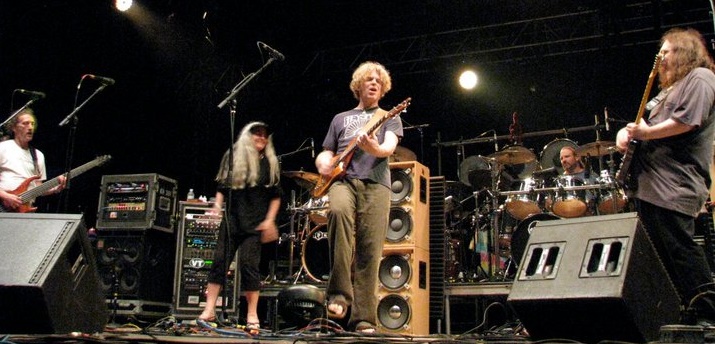
GW: I will, I definitely will. Well, thank you so much, Donna.
DG: Well, thank you, and have a good time tonight. Maybe I’ll meet you one of these days face to face.
GW: I hope so, yeah. I’m looking forward to it already.
DG: Ok, take care
GW: You too, thank you so much.






